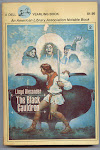
Well, children, according to this book, Richard really was lion-hearted, although he was a bad man--but maybe not as bad as John. Richard was the darling of Eleanor's heart, and she didn't like her son John. However, she did save John's heinie once, when he was the only son she had left. And then she died.
John wasn't such a bang-up good king. It seems nobody liked him. He lost most of the Plantagenets' French lands. But somehow, during his reign, England grew from a speck to a star on the map of Europe. On analysis, this was due mainly to the irresistible forces of Process and Progress in Europe. However, England stayed together somehow and grew rich, partly because John liked to party and rest and avoid being bothered.
I learned that Magna Carta wasn't called Magna Carta from the beginning, but only called that later to distinguish it from a smaller charter concerning the forest lands.
I also learned, not from this book but from links to it, about another charter:
I. Charter of the Jews of England:
John, by the grace of God, &c. Know that we have granted to all the Jews of England and Normandy to have freely and honourably residence in our land, and to hold all that from us, which they held from King Henry, our father's grandfather, and all that now they reasonably hold in land and fees and mortgages and goods, and that they have all their liberties and customs just as they had them in the time of the aforesaid King Henry, our father's grandfather, better and more quietly and more honourably. ... (1200 A.D.)













No comments:
Post a Comment